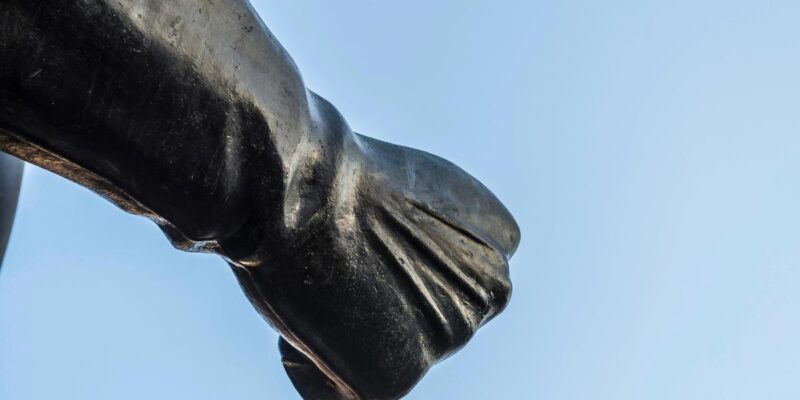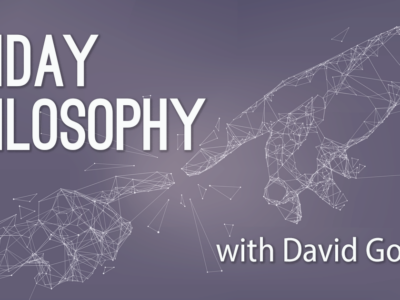
Despite its origin in Marxist-syndicalist thought, “fascism” has long been used as a derogatory label for practically anyone on the right wing of the political spectrum. Sometimes the label is warranted, but other times it is used against those who have virtually nothing in common with fascists, such as libertarian capitalists. Progressives are quick to label any kind of economic deregulation and reduction in federal overreach as “fascist.”
Want to have a free market? Fascist. Want to get the federal government out of education? Fascist.
The history of projecting fascism’s crimes onto capitalism and capitalists is very long. The Communist International in 1935 declared fascism the result of monopoly capitalism. In the 1960s and ’70s, many Marxist intellectuals like Kurt Gossweiler and Jürgen Kuczynski tried to tie the emergence of fascism with business interests. In the late ’90s Marxist political scientist Michael Parenti called fascism “all-out government support for business” while also claiming Nazis and Italian Fascists were “privatizing” the state-owned businesses.
A more recent brutalization of fascist history and thought comes from Jason Stanley’s 2018 book How Fascism Works, which was appropriately described by Paul Gottfried as being a collection of “unverified historical statements.” Stanley seemingly didn’t do any thorough reading into fascist thought before making the claims, “In fascism, the state is an enemy; it is to be replaced by the nation, which consists of self-sufficient individuals,” and, “The fascist vision of individual freedom is similar to the libertarian notion of individual rights.”
The leftist social media mob is even worse than the intellectuals. Last year when Betsy DeVos proclaimed, “I personally think the Department of Education should not exist,” the mob met her with thousands of accusations of fascism. Thomas Massie and Marjorie Taylor Greene received similar treatment when they introduced a one-sentence bill to abolish the Department of Education.
Fascism, however, emerged as an explicitly anticapitalist ideology. Giovanni Gentile and Georges Valois stressed that the “intellectual father” of fascism was the French Marxist Georges Sorel, the same Sorel who helped inspire other anticapitalist movements, such as Bolshevism. Ludwig von Mises noted in Marxism Unmasked, “It was the idea of French Syndicalism that influenced the most important movement of the twentieth century. Lenin, Mussolini, and Hitler were all influenced by Sorel, by the idea of action, by the idea not to talk but to kill.”
The actions and policies of the Fascists further verified their anticapitalism. The state fundamentally switched roles with the capitalists as the wielders of economic power. Political scientist Franklin Hugh Adler noted that “the [Italian] state had more latitude for control over the economy than in any other nation at the time except for the Soviet Union.” Mussolini mandated union membership, harshly regulated industries, and socialized more than eighty firms. The Fascist government confiscated stock holdings of banks and took over near-bankrupt companies. As a result, the Italian government held substantial positions in numerous other businesses as well as controlling interests in others, including iron production, naval building, and shipping.
Historian A. James Gregor correctly observed, “Fascism never served the interests of Italian businesses,” and that the businessmen “welcomed the disappearance of Fascism.” Mussolini’s philosophy had no room for the individual rights and preferences of entrepreneurs and capitalists.
Fascism was not about individual rights but, instead, was fundamentally anti-individualistic. Benito Mussolini wrote, “The Fascist conception of life stresses the importance of the State and accepts the individual only in so far as his interests coincide with those of the State.” Far from viewing the state as an enemy (as Jason Stanley claimed), fascism placed the state upon the highest pedestal.
Fascists were certainly not believers in decentralized education. Mussolini wanted to “reaffirm a principle in an explicit way: that the state does not simply have the right, but rather the obligation to educate the people and not only to train the people.” Mussolini renamed the Ministry of Public Instruction the Ministry of National Education and set out to establish national curriculums to educate and indoctrinate the youth.
According to historian Eden K. McLean, the Fascist state had a “relentless desire for more control over the rural population” and put much emphasis into dominating decentralized rural schools. Mussolini’s goal to “centralize and politicize the education system” was the opposite of DeVos’s advocacy against the Department of Education.
Despite the mislabeling and misconceptions surrounding fascism’s association with capitalism, historical evidence shows that fascism was fundamentally anticapitalist, emphasizing the primacy of the state over individual rights and interests. It promoted state intervention in the economy and centralized control over education, debunking the notion that fascism aligned with libertarian capitalism or advocated for economic deregulation. Understanding these historical nuances is crucial for accurate political discourse and avoiding the misuse of labels and ideologies.







